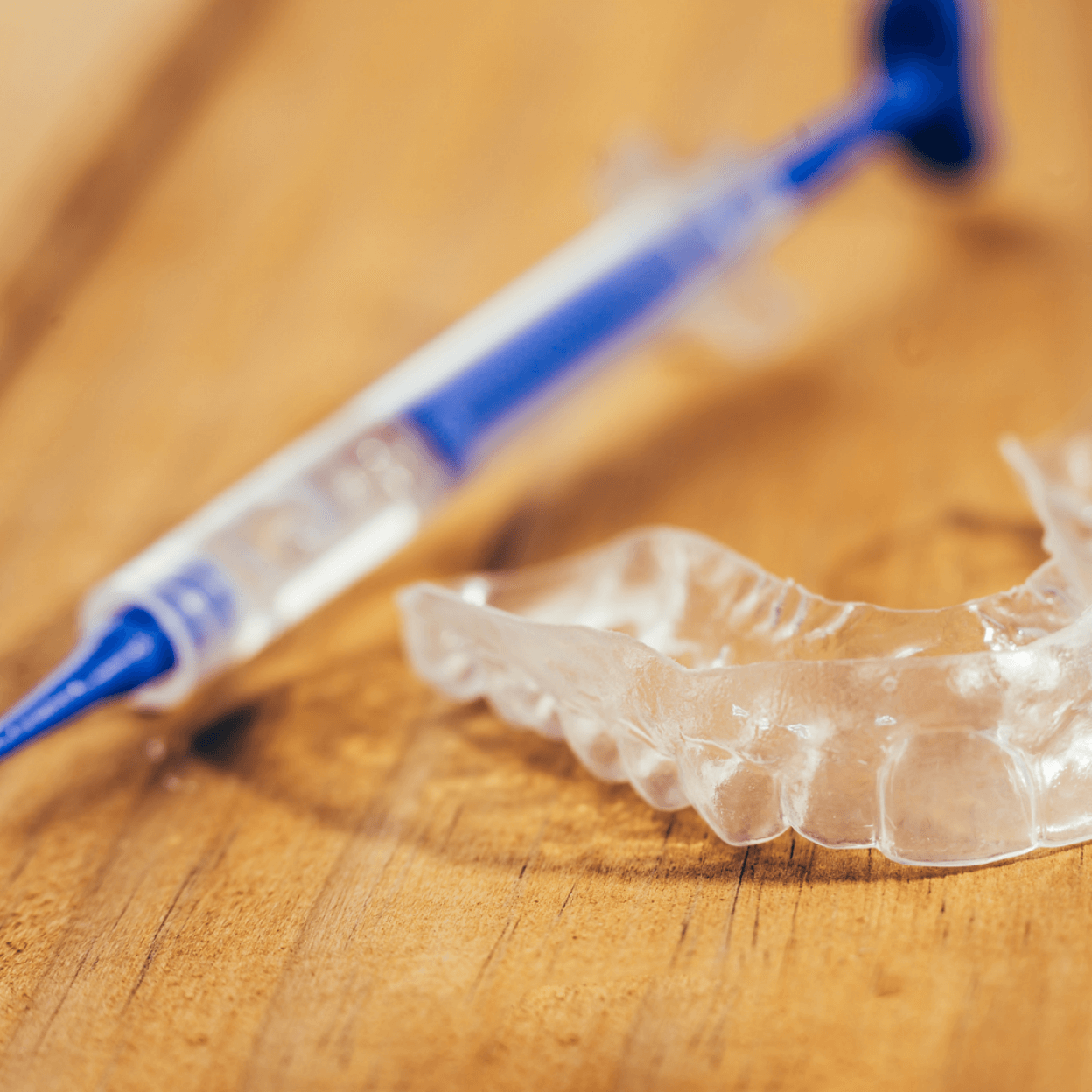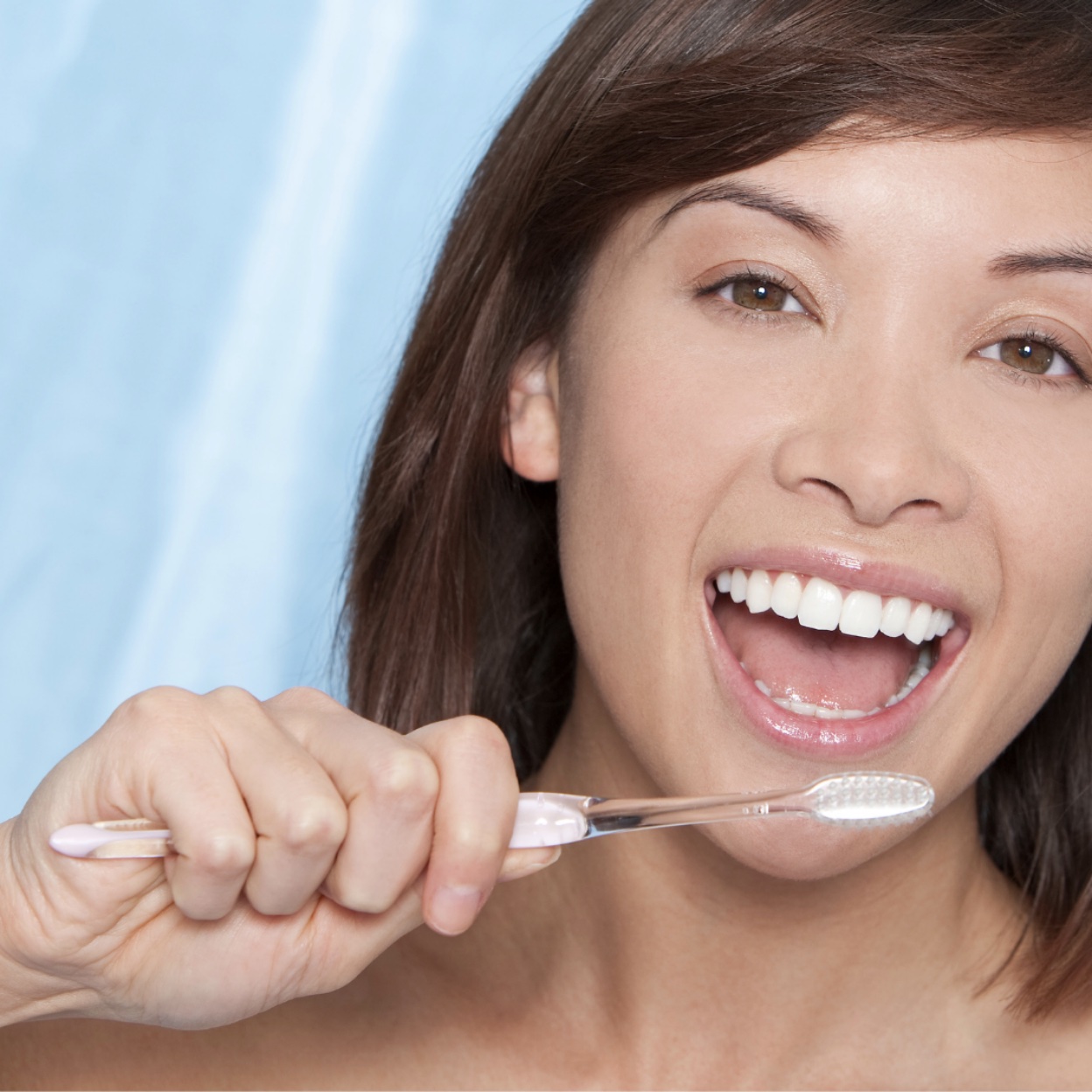Did you know…
that the teeth naturally darken as we age? Furthermore, certain foods, beverages, medications and habits can contribute to a darker, yellowed, or stained smile. However, it may be possible to erase years of stains with the appropriate professional whitening option and sustain those results for many years with proper maintenance. According to the American Academy of Cosmetic Dentistry, professional whitening is best maintained by a combination of good oral care and take-home whitening treatments as recommended by your dentist.
Teeth whitening procedures are used to brighten the appearance of a patient’s natural teeth and can often dramatically enhance one’s smile. However, many people seem to have some confusion on what works best or have had mixed results with previous attempts at teeth whitening. Let’s clarify.
What whitening method is best for me?
The two main methods of whitening include professionally prescribed or over-the-counter treatments such as whitening strips.
Professional prescribed teeth whitening can be performed with a combination of in office and take-home methods we’ll discuss. In contrast, various over-the-counter products are available to directly purchase and apply without the supervision of a dentist. In comparison to over-the-counter teeth whitening treatments, professional whitening uses stronger whitening agents that deliver customized, less messy, faster, and more effective results.

Professionally In office
In-office whitening consists of a thorough cleaning and polishing of the teeth, with all debris carefully removed. Your dentist will then protect your gums before applying a whitening agent to the surface of your teeth. The product will be applied and left on the teeth for several minutes before being washed off with water. Your results will vary according to the natural shade of your teeth and degree of discoloration. It is normal for patients to experience a lightening of several shades in a single visit. Next, we fabricate whitening trays that are custom to your teeth for take-home use.
You’ll apply the whitening gel included in your take-home kit with specific instructions based on our recommendations for your mouth. This is a daily application for 1-2 weeks depending on the prescribed routine. A nice advantage to custom trays is they may last for many years and be used for multiple applications should you choose to whiten your teeth again in the future. Some of our patients choose our option to do the custom tray take-home kit only and skip the in-office portion. Consistency is the key. Once you start, don’t stop. A common mistake patients make is they do the treatment for a few days and stop. They may forget or give up after not seeing immediate results. It’s important to take a before and after photo to compare the results. Otherwise, it’s tough to recognize the day to day changes as you go along.
Over-the-counter
We like to let our patients know that over-the-counter white strips may also achieve the results you’re looking for. It has the possibility of being a more cost effective solution. The disadvantages being that it tends to be messy and the wear time is typically longer due to the weaker concentration of whitening agents.
We would be glad to assess the color of your teeth and help you make an informed decision on what whitening method is best for you.
How “white” will your teeth get?
You don’t know until you try. Unfortunately, it’s hard to predict how “white” your teeth will turn if you have never had whitening treatment. There are many factors that make up the color of your teeth. Some of those factors include the natural internal and external color of your teeth and the external staining that has happened with time. External staining usually comes from your diet and the severity of the staining increases with any rough areas of your teeth. The smoother the tooth structure, the less stain the tooth will pick up. Therefore, two different people can follow the same whitening regimen and get two dramatically different results.
What about light-activated whitening?
It’s pure marketing. Whether you’ve seen in-office or over-the-counter whitening products advertised that use a light to brighten your smile, take caution. Current research has not shown that the use of any sort of light improves the effectiveness of teeth whitening. We do not recommend this type of whitening.

Frequently Asked Questions
It is normal to experience some tooth sensitivity during and after whitening treatment. You may be instructed to avoid consuming highly pigmented beverages for at least 24 hours to prevent the teeth from becoming stained again. Examples include tea, coffee and wine. We recommend brushing your teeth with a sensitive formula toothpaste, such as Sensodyne, two weeks before, during and after any whitening treatment.
In general, whitening toothpaste can be effective in removing surface stains from your teeth but will not get an effective whitening result. The heavier grit particles in the toothpaste is really what helps remove those surface stains. Please remember to look at the ingredients listed and be aware that a lot of marketing dollars go into selling whitening toothpaste. Remember, the main purpose of toothpaste is to help remove plaque and food from your teeth to help prevent tooth decay and gum disease.
We know a few things about charcoal toothpaste. It can help whiten teeth due to the heavy grit present, and it is generally more expensive than regular toothpaste. However, we don’t know it’s long-term effects. There is not enough scientific data to know the harmful effects and we do not recommend the use of charcoal toothpaste to help whiten your teeth.
You may be a candidate for teeth whitening if you feel your teeth are discolored. It’s important to make sure your teeth and gums are otherwise healthy before starting whitening treatment. Schedule a consultation with Dr. Jimmy Lutz to find out if teeth whitening could be right for you. Some patients, such as those who are pregnant or sensitive to whitening agents, may not be candidates for professional whitening.
